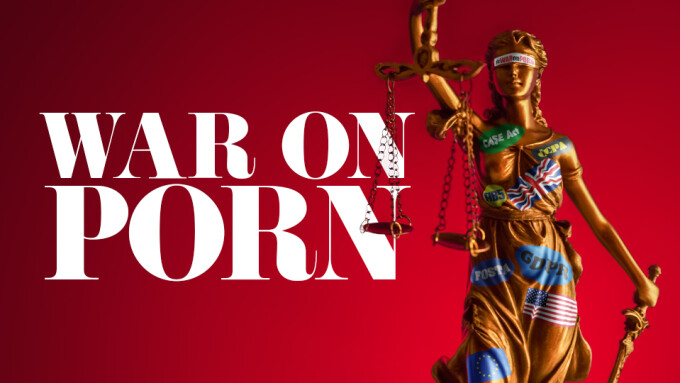LOS ANGELES — Free speech advocates, tech lobbyists, civil liberties groups and others are raising the alarm about legislation unveiled Thursday, intended to combat "online sexual abuse of children," that directly threatens Section 230 of the Communications Decency Act, which offers tech companies a measure of protection from liability for content posted by users of their websites or platforms.
Section 230 has been described as "the internet's First Amendment."
"Without Section 230, it would be hard for companies to avoid lawsuits and criminal charges without either becoming cesspools of totally unmoderated speech or banning user-generated speech entirely," observed Reason.com last year.
Yesterday's bill, the Eliminating Abuse and Rampant Neglect of Interactive Technologies Act, or EARN IT Act, would revoke tech companies' long-standing protection from being sued based on user-posted content "unless the companies comply with a new commission's 'best practices' for combating the spread of online sexual exploitation, or show that they've taken other 'reasonable' steps to address the issue," reports Ben Kochman for Law360.com.
Critics immediately raised concerns over the ability of the proposed National Commission on Online Child Sexual Exploitation Prevention (NCOCSEP) to "target end-to-end encryption, the technology that bars third parties, including law enforcement, from reading the content of communications or accessing encrypted devices."
NCOCSEP would have 19 members under the leadership of U.S. Attorney General William Barr, "a consistent critic of encryption," notes Law360, "who has pushed companies like Facebook and Apple to scale back the technology to help law enforcement."
Barr criticized Section 230 at a Justice Department workshop last month, claiming it acts as a deterrence to law enforcement efforts.
Sen. Ron Wyden (D-Ore) co-authored Section 230 in 1996. He condemned the new legislation as "terrible" and "a Trojan horse to give Attorney General Barr and Donald Trump the power to control online speech and require government access to every aspect of Americans' lives," reports Law360.
Nevertheless, the bill's supporters, among them Judiciary Committee Chairman Lindsay Graham (R-S.C.) and ranking member Sen. Diane Feinstein (D-Calif.), claim "the EARN IT Act, appropriately curtails Section 230 in light of the growing spread of child sex abuse material online."
Tech giant Facebook said yesterday the EARN IT Act could adversely affect "everyone's safety from criminals and hackers," notes Law360.
A number of lobbying groups, among them the Computer & Communications Industry Association, the Consumer Technology Association and the Internet Association, released an open letter expressing deep concerns about the bill's implications.
The American Civil Liberties Union, meanwhile, condemned the EARN IT Act as a threat to "the safety of activists, domestic violence victims and millions of others who rely on strong encryption."
Additionally, law enforcement officials from the U.K., Canada, Australia and New Zealand on Thursday attended a press conference with Barr where 11 "voluntary principles" were announced that reps for Facebook, Google, Microsoft, Twitter, Snap and Roblox have agreed to follow "in an effort to curb online sex crimes."
None of the principles, however, address encryption, which the U.K. minister of state for security described as the "elephant in the room."
The full judiciary committee will discuss the EARN IT Act on Wednesday.
Find the Law360 article online here.




